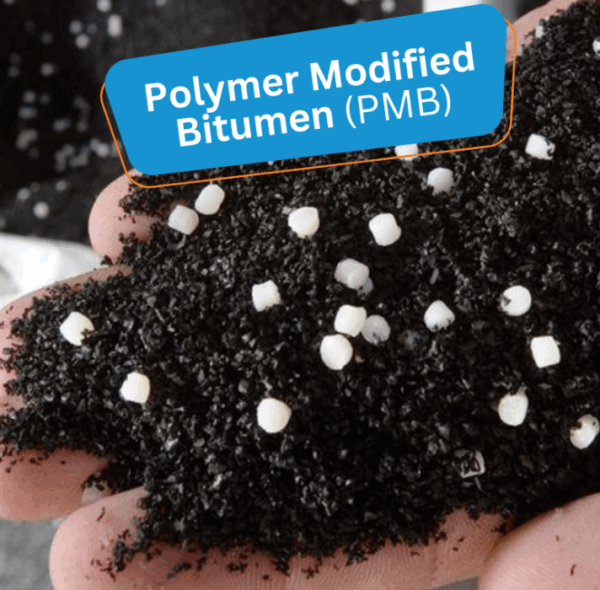
- Building up Strong Road Construction & Development for movement of Heavy of heavy Vehical, Movement of High Volume Traffic.
- For higher altitude in temperature levels.
- For Binding Layer in Sealing Cracks of Stressed Pavements.
- For Making High Load Runway of Air Field.

Polymer Modified Bitumen is bitumen that has been enhanced by adding polymers to improve its physical properties such as elasticity, strength, and resistance to deformation and aging.
There are mainly two types: elastomeric polymers like Styrene-Butadiene-Styrene (SBS) that enhance flexibility and elastic recovery, and plastomeric polymers like Ethylene Vinyl Acetate (EVA) that increase stiffness and resistance to high temperatures. Crumb rubber is also sometimes used.
PMB provides better resistance to rutting, cracking, and fatigue; improves water resistance; enhances durability and adhesion to aggregates; and performs well across a wider range of temperature extremes.
PMB has a higher softening point, improved elasticity, more resistance to aging and deformation, and generally better fatigue resistance than conventional bitumen, leading to longer pavement life.
Grades such as PMB 120 and PMB 70 are common, differing in penetration and softening point, which influence flexibility versus stiffness balance for different climates and traffic loads.
PMB is produced by heating bitumen and mixing it with polymers under controlled conditions to create a homogeneous binder with enhanced properties.
PMB is used in high-volume roads, intersections, bridge decks, and other applications requiring improved pavement performance, especially in extreme weather and heavy traffic conditions.
Some PMBs incorporate recycled crumb rubber and bio-based polymers, contributing to sustainability goals by recycling waste materials and reducing environmental impact.
Progressive Company
We are progressive company
Certified Products
Laboratory certified Products
Environment Safe
Environment safety certified Products
Stay Connected


